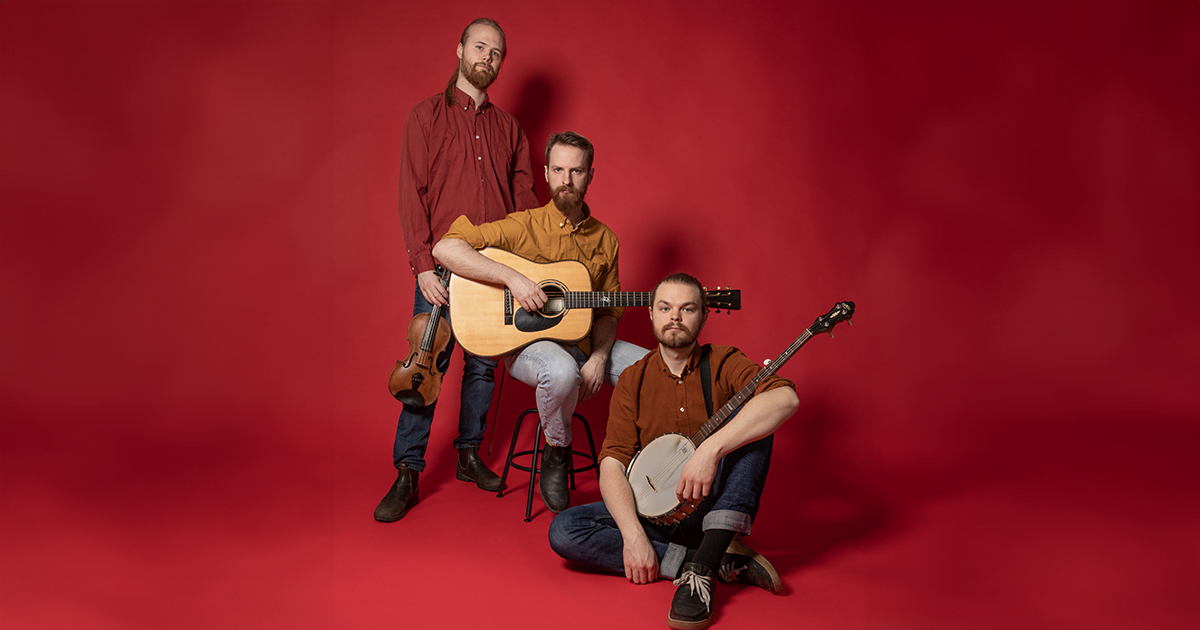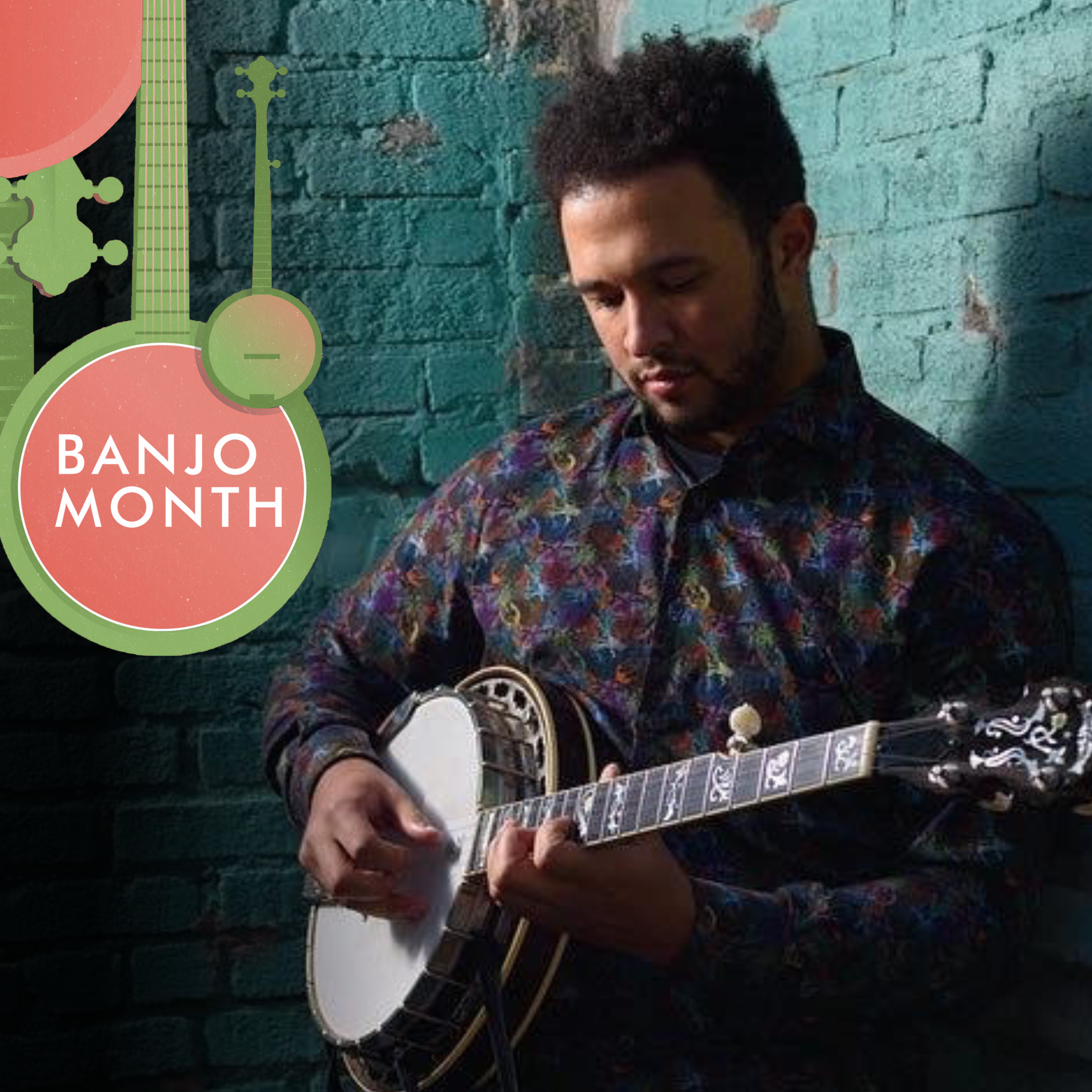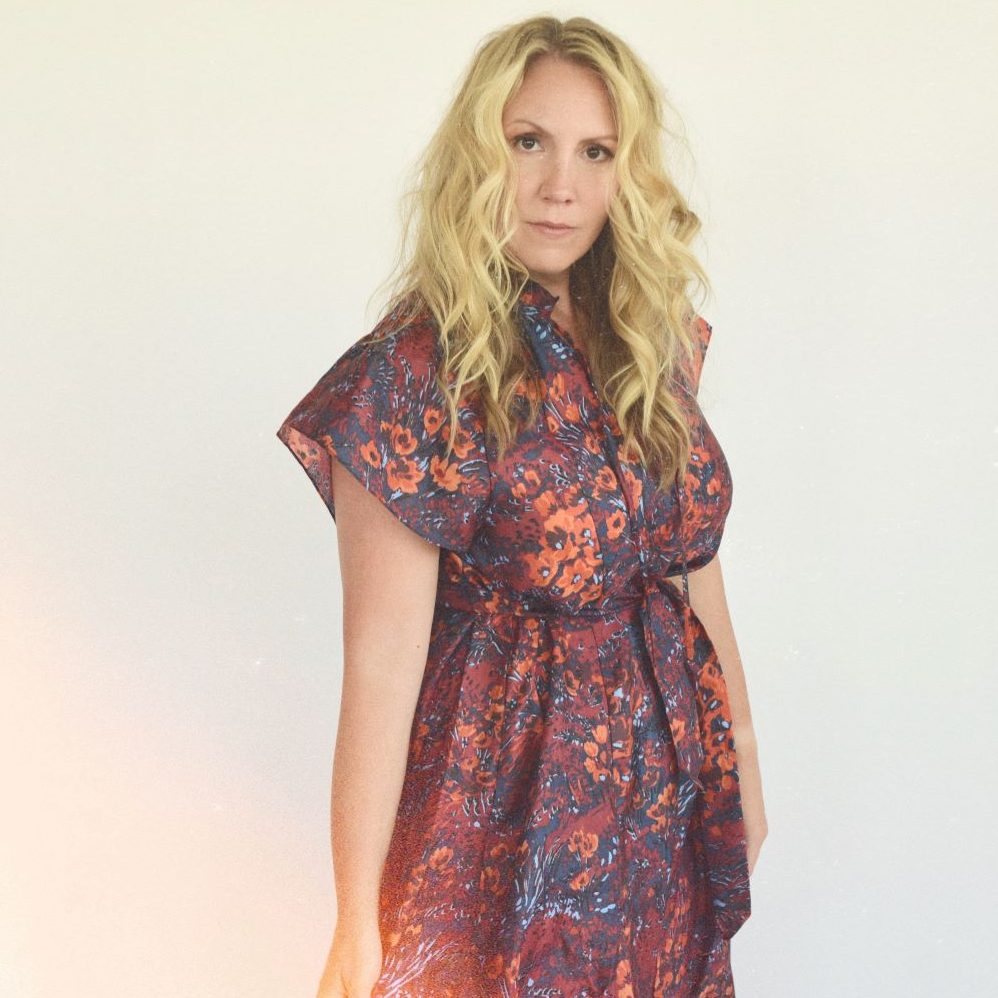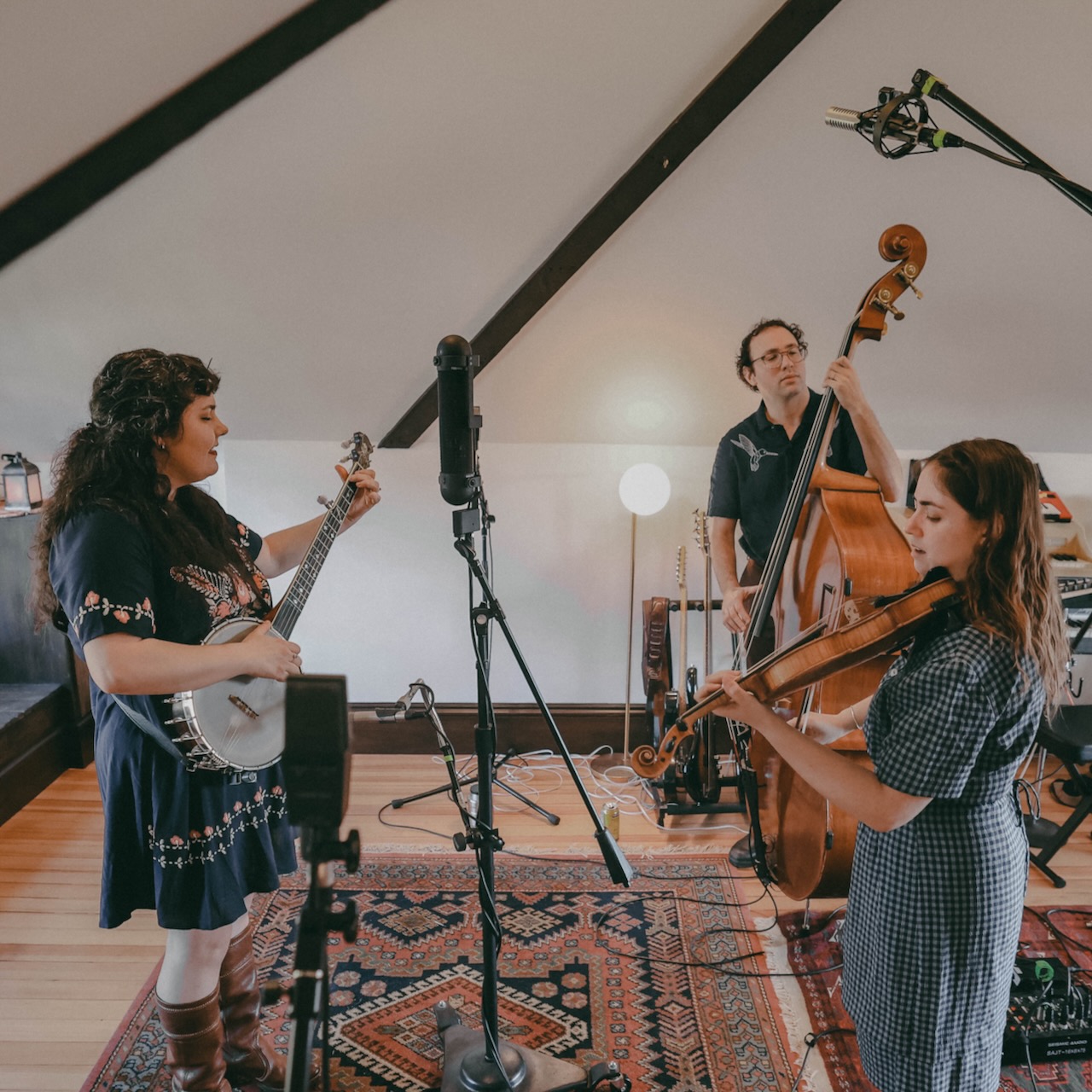Hometown: Malmö, Sweden
Which artists have influenced you the most?
Our greatest source of fiddle tunes would be the American fiddler Rayna Gellert. We fell in love with her groovy playing and her taste in source material. Many of the tunes we play are from her record, Ways of the World, including the title track which we also recorded for our debut album, New Valley.
Sam Amidon is another source of inspiration. His exploration and retelling of the traditional material with a quite minimalist style of arranging is something that guides parts of our process and something we strive to achieve ourselves.
Anna & Elizabeth would be our go-to when it comes to vocals. What they do is just absolutely astounding and continues to give the shivers to this day, even after hearing their music many times over.
Lastly we have many inspirations from the Nordic, especially from the Swedish trad scene. The duo Hazelius/Hedin and the band Bäsk are both big inspirations. Just like us, they both play traditional fiddle/dance tunes in a modern style and arrange old songs and ballads with a lot of after thought.
If you had to write a mission statement for your career, what would it be?
Musically, the three of us all come from the Nordic folk scene and the modern style of playing and arranging traditional Swedish dance tunes. When the band was formed we made a conscious choice that instead of fondly playing old-time music as historically or culturally accurate, we’d rather discover it and express ourselves in the way that we felt most natural. The result of that process became our own unique style of playing the old Appalachian fiddle tunes and songs. With interest and respect for the individual instrumental traditions, we arrange our music in a similar way that we would with the Swedish polskas or schottises. We call this style “Nordic Old Time” and we see it as our mission to explore this concept, and with it we can spread the traditional North American music to our peers and colleagues in the Nordic folk scene.
What has been the best advice you’ve received in your career so far?
Lukas, our banjo player, once met with the great Swedish folk musician Ale Möller, one of the founders of the Swedish world music scene. His advice to young musicians was to choose between being a specialist or a generalist. Either you can fit in any band or project or you establish your speciality so that when someone wants that, you’re the only one to ask. This spurred Lukas to both get more into the old time tradition that is otherwise a bit unknown in the Swedish folk scene, and to learn all stringed instruments there are. With all that being said, which path do you think he chose?
What’s your favorite memory from being on stage?
In April this year we performed at a small festival called Växjö Country Roots Festival. It’s a one day festival where six different bands that play American folk and roots music are doing one concert each during the evening. The event was sold out and there was a nice energy in the room. The performance went well and the audience seemed to like our way of interpreting the old time style, but the best thing about the festival was that it was a great way of gathering a lot of musicians doing bluegrass/Cajun/old-time/Americana music in Sweden.
It was really nice seeing the other concerts, but also jamming backstage, talking to other people doing a Nordic version of American folk music, and realizing how different it can sound. The arrangers did a great job with finding bands doing quite different sounds and even if it was a long night, the audience had a high energy the whole evening and it all ended with the musicians having a long jam session at the hotel until late night.
What rituals do you have, either in the studio or before a show?
As a band, the only ritual we have so far is to warm up our voices together. We’re including more and more songs in our repertoire, and to be able to push our voices on stage it’s important for us to do some warming up and check-ins with our intonation. Apart from that we all have some individual things we like to do before going up on stage.
If Adam has the time he likes to massage his feet. He picked that up from one of his teachers at a camp some years ago. According to this teacher, if you’re comfortable and grounded with your feet, you will be comfortable and grounded on stage.
Michael likes to take some time backstage to do some breathwork and settle his mind. If it’s possible, he also likes to take the time to get familiar with the room/venue from the perspective of the stage before the show, to be more comfortable and prepared for what to expect with that specific stage.
We’ve also learned from experience that Lukas needs to eat something before a show.
Photo Credit: Aija Svensson



